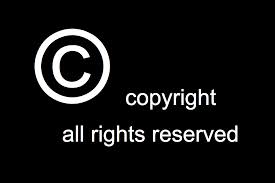
It’s difficult to judge if King knew what taking his discourse out of the public domain would mean.
The release of the film Selma this month adds meaning to the holiday honoring Martin Luther King’s birthday. But some details about what the producers had to do to put King’s courage on view add a slightly sour note to this year’s tribute.
Most Americans probably do not know that the great civil rights leader’s words may not be rewritten or replayed without payment to King’s heirs. Soon after the famous “I have a Dream” speech on the National Mall, King moved to legally retain legal ownership of it, and eventually other statements made by him throughout the years of his struggle. He copyrighted his public rhetoric in a way few would ever think possible or desirable. It’s difficult to judge if King knew what taking his discourse out of the public domain would mean.
The family’s explanation for monetizing and controlling the leader’s rhetoric is that he and they did not want his words used for commercial or unintended purposes. If you want a video copy of the speech, you will need to buy it from Amazon or some other seller of audio content. If you are a documentary filmmaker seeking footage of the era, payment would be required for any portions that include statements from King. And if you are retelling key moments from his life, his words are off-limits, even though the family has apparently licensed segments for use in commercials.
The challenge was especially great for the producers of Selma, who were forced to write their own King-like oratory to recreate the fateful 1965 march. The exclusive film rights to those words have apparently been sold to DreamWorks’ Steven Spielberg.
It even gets even more peculiar. Stanford University runs the Martin Luther King Institute that oversees a “King Papers Project.” But getting access to the papers is not easy. Here’s their online warning:
The Institute cannot give permission to use or reproduce any of the writings, statements, or images of Martin Luther King, Jr. Please do not contact us for this purpose.Inquiries regarding the use or reproduction King's writings or statements should be directed to the manager of the Estate of Dr. Martin Luther King, Jr.: Intellectual Properties Management (IPM).
How very strange, for several reasons. First, in my years in academic publishing, I’ve rarely encountered an editor who had to pay a license fee in order to reprint speeches and statements from major political or social figures. I’m sure it has happened somewhere. But most principals or their estates understand that the nation’s civil culture is predicated on widespread dissemination of foundational documents. The general guideline is usually that it’s more about the ideas than monetizing them.
Second, when you put a price on jeremiads that called on others to join a collective struggle, claiming legal ownership of those words undermines the very ethic of personal sacrifice they are ostensibly about. King asked much of his followers, especially when they were recruited to march—as in Selma—without any police protection. Given the willingness of so many to selflessly further the cause of civil rights, It’s difficult to understand why he set up an intellectual property mechanism that would put his rhetorical legacy on the auction block. Freely sharing his words would have been better served the idea that this was a collective struggle. Surely documents that are part of a nation’s social and cultural advances deserve a better fate than being sold to the highest bidder.
Comments: Woodward@tcnj.edu